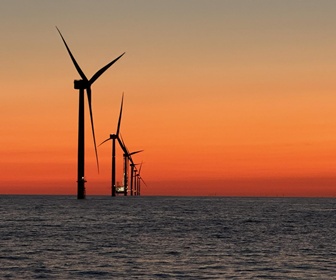A new study by the Offshore Wind Energy Foundation highlights significant risks associated with Germany’s current offshore wind tender model and quantifies them for the first time. Conducted by Enervis Energy Advisors, the analysis concludes that the existing approach to offshore wind area allocation could have long-term negative economic and energy policy consequences.
The Offshore Wind Energy Foundation is calling for a revision of the model to minimise economic and energy policy risks, and to support sustained growth and value creation in the offshore wind sector through effective regulation.
Drawing on successful European examples, the foundation suggests a new model could be developed through dialogue with the industry. Key elements include:
Introduction of two-sided Contracts for Difference (CfDs): These contracts would reduce financial risks by stabilising revenues and lowering overall system costs. The current model—with negative bidding components and no revenue guarantees—raises risk premiums and costs without broader benefits. A well-designed national CfD system would ease market pressure and better support Germany’s energy and industrial policy goals.
Limits on auction volumes per bidder: This would preserve a diverse field of participants, foster competition, and reduce dependency on a few large developers with extensive project pipelines.
Realistic and clear prequalification requirements: Such measures would prevent unrealistic bids while keeping the market accessible. These could be linked to instruments such as the EU’s Net Zero Industry Act.
Introduction of quantitative criteria: Metrics like carbon footprint during component transport or system integration innovation could strengthen project quality beyond pricing alone.
The current system awards offshore wind sites to the highest bidder. While the Federal Ministry for Economic Affairs and Climate Action (BMWK) considers the record €13.4 billion in auction revenues in 2023 a positive contribution to grid fee reductions and a sign of market strength, the study warns of significant trade-offs.
According to the report, high bids could result in rising power prices, as developers may pass costs onto industry via power purchase agreements. Energy-intensive sectors such as rail transport and chemical production could be particularly affected.
The study also finds that auction revenues will have only a limited impact on reducing the offshore grid surcharge. Even under the most optimistic scenarios, the effect would be capped at 7.4%, and only if projects are completed. Since 90% of the auction sums are only due after commissioning and over the project's lifetime, the tender system must ensure a high likelihood of project realisation to support efficient grid planning and cost control.
This is not currently guaranteed. High bid prices are putting pressure on developers to cut costs, particularly in the procurement of major components like turbines and foundations. This may favour non-European suppliers—especially those from China—who benefit from state subsidies and can offer lower prices. As a result, European supply chains may come under additional strain.
At the same time, geopolitical, regulatory, and market uncertainties are increasing the likelihood that projects will become economically unviable. In such cases, developers could withdraw, leading to cancellations with serious consequences for the energy transition.








